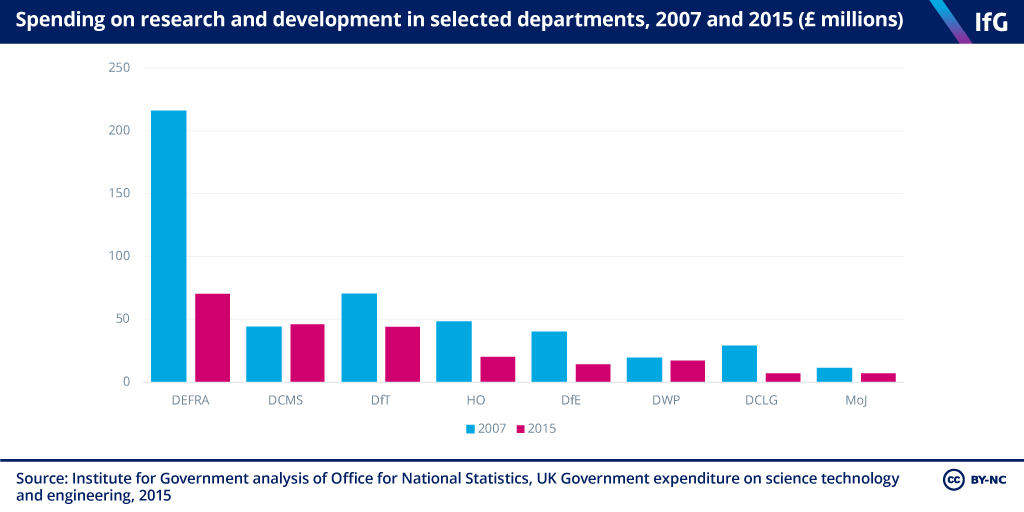Government still lacks a strategic approach to research
Departments need to develop more comprehensive strategies for accessing the evidence and research they need.
The publication of the Government’s Areas of Research Interest is a positive step, but Whitehall still lacks a strategic approach to research and evidence, argues Tom Sasse.
Policy makers need to find the research and evidence they need to strengthen policy, and researchers need to identify the Government’s priorities so that they can provide input.
The 2015 Nurse Review of Research Councils called on government to publish the priority questions it would like answered through new or existing research. Sir Jeremy Heywood, the Cabinet Secretary, announced the first publication of the Cabinet Office’s Areas of Research Interest (ARI) last week.
Six government departments (Business, Energy and Industrial Strategy; Health; Transport; Environment, Food and Rural Affairs; Cabinet Office; and the Foreign Office) have now published their ARI’s, with the rest expected to follow soon.
These first six ARIs are mostly brief, high-level and of mixed quality. The Department for Transport’s ARI, however, stands out as an example for others to follow.
These ARIs are welcome, but departments need to develop more comprehensive strategies for accessing the evidence and research they need.
Departmental cuts have affected research capacity
Significant cuts to departmental research budgets mean civil servants who work on developing government policy often cannot afford to commission their own research, and staff cuts have affected research capability.
Although overall research and development spending across departments has grown since 2008, this rise has been concentrated almost entirely in three big spending departments: Business, Energy and Industrial Strategy; Health; and International Development.
The overall trend masks deep cuts to research budgets in other departments. Between 2007 and 2015, research spending more than halved in five departments. In the Department for Environment, Food and Rural Affairs it fell by two thirds; in the Department for Communities and Local Government, by three quarters.

On average, staff numbers fell by 20% across departments between 2010 and 2016. Departments have told us that these cuts disproportionately affected research capacity, which is seen as lessimportant than frontline policy roles. Sadly, staff data is not granular enough to explore this further.
Departments need new approaches to finding evidence
Departments with greatly reduced capacity to commission or conduct research have to find the knowledge and evidence they need in other ways.
The ARIs can be part of this, but given the typically lengthy timescales for funding and conducting academic research they will not help the civil service meet shorter-term challenges, like many of the questions raised by Brexit.
Nor will they solve the deeper challenge of creating much stronger relationships with academia. Government departments and the Policy Profession (an informal network for civil servants who work in, or are involved with, the formation of policy) should focus on the skills policy makers need to be able to understand and navigate academia in terms of disciplines, content, working patterns and motivations. The Research Excellence Framework, which rewards academics for impact, offers a huge potential resource for policy makers if they understand how to make better use of it. Policy makers also need to get better at judging the quality and strength of academic evidence – and being more consistent in how they use it.
Government departments should also address culture. Institute for Government research found that policy makers are rarely encouraged to look for new evidence or feel they do not have the time to do so.
Civil servants often harbour negative perceptions of academics as being too slow, too time-consuming and not relevant enough to properly engage with. This is sometimes true, but not always.
The Nurse Review concluded three years ago that departments lacked a ‘strategic approach’ to research. They still do. The development of ARIs is a first step towards fixing this, but there is much more to be done.
- Supporting document
- IfG_government_academia_June_2018_vb.pdf (PDF, 944.78 KB)
- Topic
- Policy making Civil service
- Keywords
- Civil servants Civil service reform
- Publisher
- Institute for Government